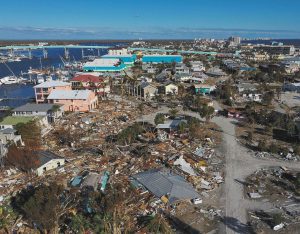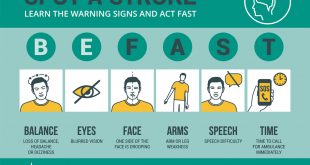By Dr. Thomas Hofmann


The damage created by the storm extends beyond the event itself.
First, the thoughts and memories of Ian remain on people’s minds. Over time, these thoughts will lesson. These thoughts can cause stress reactions, like jumpiness, fear and anxiety. Second, physical symptoms like trouble sleeping, severe headaches, stomach upset, and the worsening of ongoing medical problems can happen. And third, you can experience emotional symptoms, which can range from feeling shocked, numb, angry or detached to being unable to feel joy or love.
The aftermath of a disaster can trigger conditions that include longer term stress reactions from the memory of the event, depression, guilt, anger, suicidal thoughts, or substance abuse.
Other factors include the level of exposure to the disaster. Did you ride out the storm in your home where there was severe, or even life-threatening damage? If you were in a safer place, either because you evacuated the area or were in a shelter, the constant news and images can also cause distress.
Recovering from natural disaster is an ongoing process. This is when you turn to your family and friends when you’re ready to talk about your thoughts and feelings. They are your support system. Sometimes, however, you may need treatment that includes a counselor or doctor as you would for any other condition. AS you know, neglecting a problem doesn’t resolve it. Fortunately, it has become much more accepted to take advantage of the expertise and help a counselor or therapist can provide. How you recover depends on many factors mentioned here.
Such an experience can also shed light on thoughts you have been contemplating before the disaster struck. You may gain added appreciation for relationships and goals. Maybe you’ve been thinking about making life changes, and this event could very well inspire you to take the steps needed to do just that. Many like you have already used events like these as the catalyst for positive change.
The bottom line is with time, a support system and/or professional help, you can overcome the trauma you experienced and move forward with your life.
Dr. Thomas Hofmann is the Program Director for the Clinical Mental Health Counseling program for Hodges University. He is a Licensed Social Worker and Marriage and Family Therapist in Florida. He is a Board Certified Telemental Health Provider, a Certified Employee Assistance Professional, a Certified Hypnotherapist of the National Guild of Hypnotists, and a Fellow of the American Association of Marriage and Family Therapists. He advocates for approaches that combine holistic, strength based methods in combination with the traditional medical model approaches prevalent in modern practices today.
HODGES UNIVERITY
239-938-7744 | Hodges.edu
 Southwest Florida's Health and Wellness Magazine Health and Wellness Articles
Southwest Florida's Health and Wellness Magazine Health and Wellness Articles

